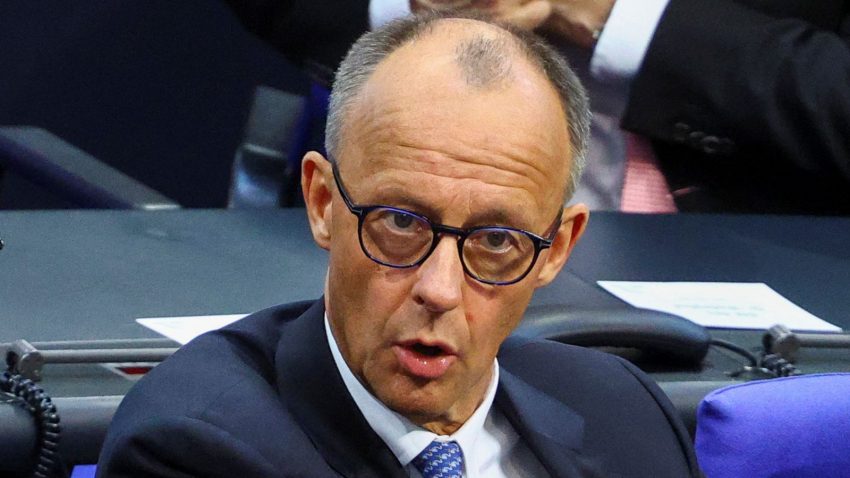Friedrich Merz’s bid to become Germany’s next chancellor has unexpectedly failed in the first round of parliamentary voting.
Mr Merz, leader of the country’s CDU/CSU conservatives, is hoping to become the 10th chancellor since the end of the Second World War.
No candidate has failed to win on the first ballot since then.
Needing a majority of 316 out of 630 votes in a secret ballot, he received 310 – falling short by just six votes.
He had been expected to win comfortably after securing a coalition deal with the centre-left Social Democrats (SPD).
Parties will now regroup to discuss next steps. Another vote could be held later on Tuesday, though the Frankfurter Allgemeine and Zeit newspapers said that had been ruled out.
Merz can run again, but others can also enter the fray.
The lower house of parliament – the Bundestag – has 14 days to elect a candidate with an absolute majority.
There is no limit to the number of votes that can be held within the two-week period.
If no one emerges as the winner, the German president can appoint the candidate who wins the most votes as chancellor, or dissolve the Bundestag and hold a new national election.
Whoever is elected as chancellor will have to decide what to do about the hard-right, anti-immigrant Alternative for Germany party.
Mainstream parties have refused to work with the AfD. A “firewall” against collaborating with strongly right-wing parties has been in place since the end of the war.
During federal elections in late February, the AfD scored its best-ever result while Chancellor Olaf Scholz’s SPD dropped to about 16%.
The new chancellor’s in-tray will also include the Ukraine War and global tariffs imposed by US President Donald Trump.


